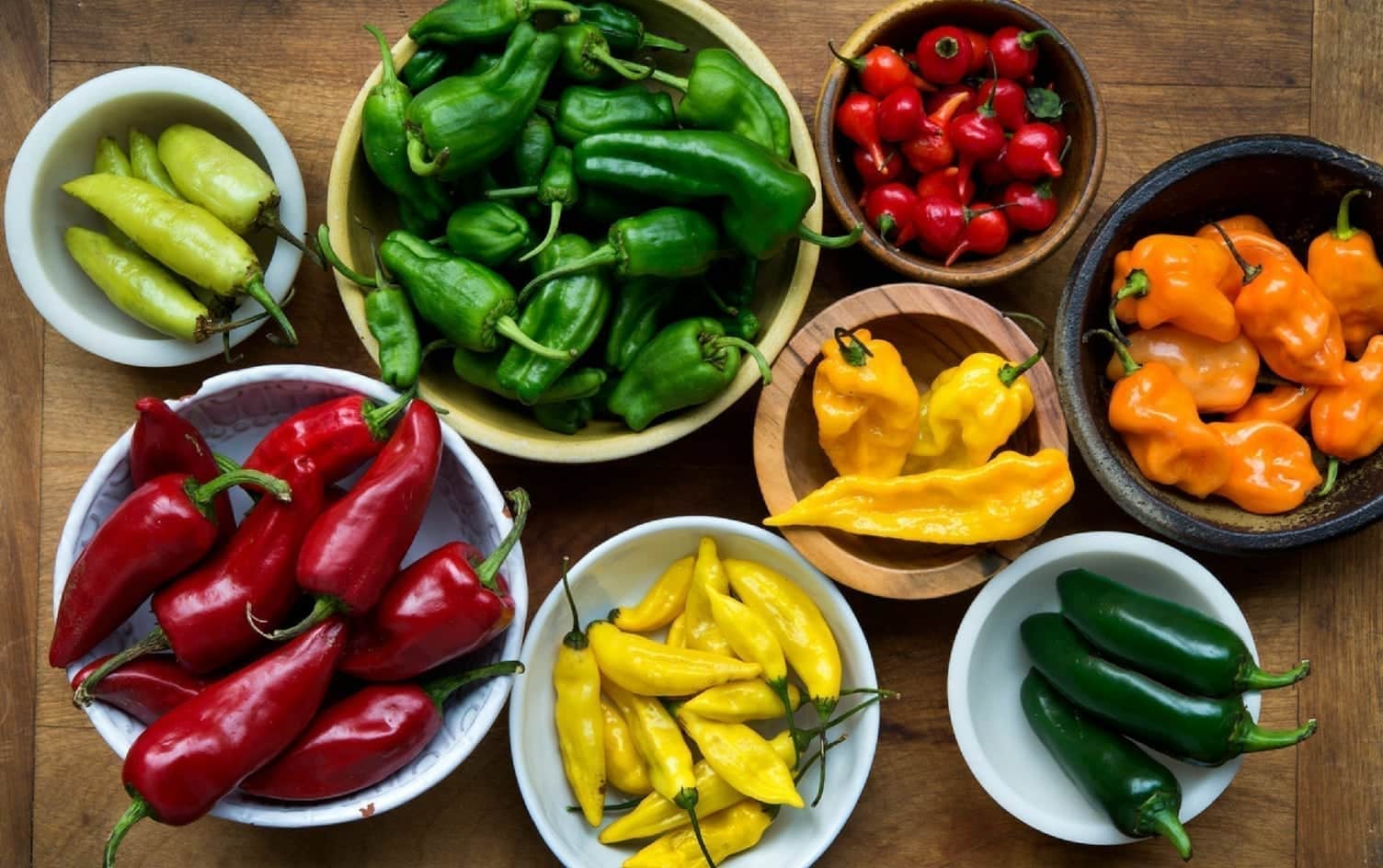Some people crave the addicting kick of spicy foods, while others avoid spice like they avoid touching hot stoves. But whichever camp you belong to, you can’t ignore the fact that hot peppers have been in the spotlight recently for their health benefits.
A 2017 study by researchers at the University of Vermont’s Larner College of Medicine found “the consumption of hot red chili peppers is associated with a 13% reduction in total mortality, primarily in deaths due to heart disease or stroke.” That’s the kind of research that’ll make you stand up and pay attention … and then head to your nearest farmers market for some peppers.
The humble pepper comes in many varieties, from tried-and-true options like jalapeños and habañeros to less common — and incredibly, painfully spicy — ghost peppers and Carolina reapers. They can be eaten raw, used in cooking and sometimes even sprinkled into a condiment or sauce.
So, with all those options, where do you start?
Great question. To find the answers, and learn more about the relationship between health and heat, we spoke with Louise Chen, a Dallas-based registered dietitian.
“Capsaicin is the active ingredient/phytochemical present in chili peppers,” says Chen. She notes that capsaicin contains many beneficial micronutrients, including vitamin C, vitamin A and potassium. “There’s ongoing research relating to capsaicin’s role in reducing the risk of colorectal and prostate cancer — and it may have neuroprotective effects for diseases like Alzheimer’s and Parkinson’s,” she adds. So far, that’s a pretty compelling reason to chop up some jalapeños on your next taco night.
In addition to the above, she mentions capsaicin is used in topical ointments to help alleviate arthritis and nerve pain and may boost metabolism, leading to weight loss. But she’s quick to point out that evidence is hazy on the latter, and the issue needs more research for a definitive assessment.
Are all peppers created equal? Well, flavor is personal, but they’re certainly not equal in terms of hotness. The actual heat level is ranked by Scoville Heat Units, and the higher the Scovilles, the hotter the pepper.
“There’s not really a best pepper, it just depends on what you are looking for and can tolerate,” says Chen. To avoid any mouth-searing discomfort that’ll have you reaching for your nearest glass of water (which, by the way, makes it worse) — or dipping your head in a tub of ice cream — start small. While capsaicin is available in supplement form, Chen advises getting those nutritional benefits straight from the natural source, rather than from pills.
If you’ve got an iron stomach, hot peppers are a great way to add healthy flavor to your food. But if you’ve got a sensitive stomach, well, it’s a different story. Chen notes that peppers can cause irritation to the mouth and GI tract if eaten in excess (or if you’re eating a particularly hot variety) and those with a history of heartburn or stomach ulcers should proceed with caution.
Of course, that’s once the peppers are actually in your body. Before that, you’ve got to wash and prep them, which means you’ll be using your hands, and that can also cause issues. Chen notes that capsaicin is located in the ribs and seeds of a chili pepper, so when cutting them, be careful not to touch your face or eyes.
“There’s a good reason why capsaicin is used as an active ingredient in pepper spray,” she says.





One Response
It’s really a helpful blog. Most of the people may completely unaware of the above mentioned health benefits of the hot peppers. As we read above the hot peppers contains useful micro-nutrients like potassium, vitamin C, and vitamin A. Thanks for the suggestion of best peppers and tips on how can we bought the original peppers from the market.